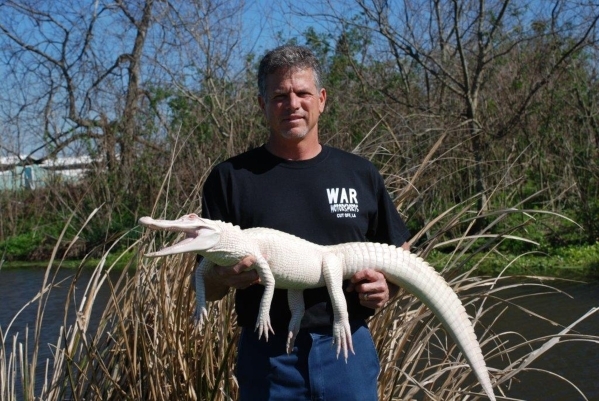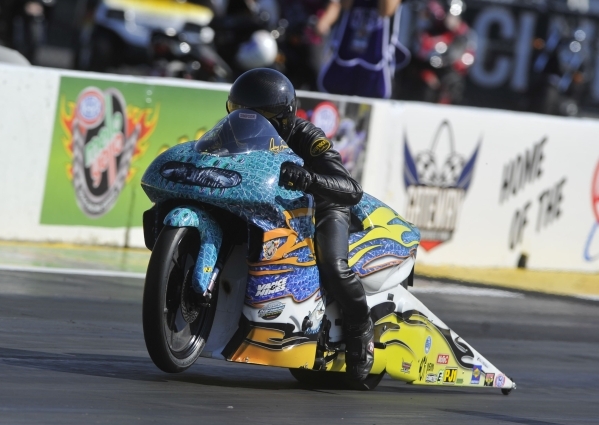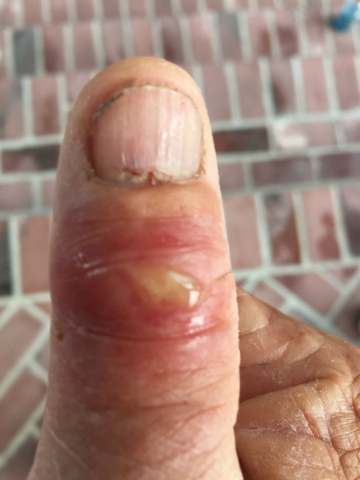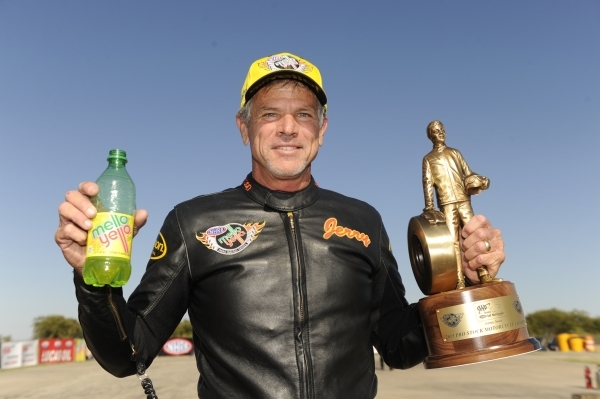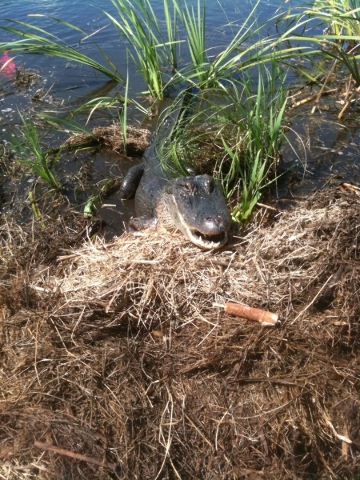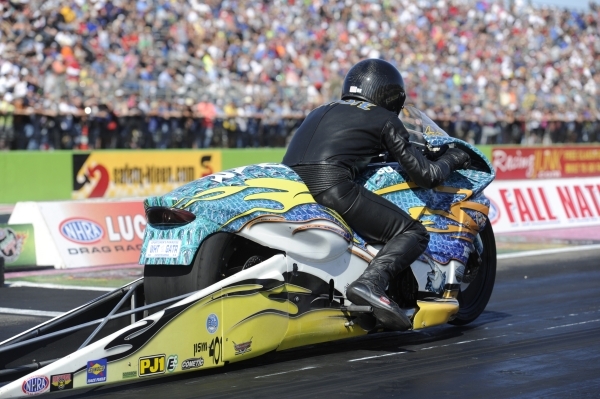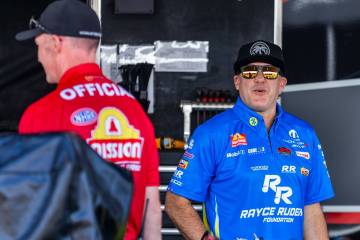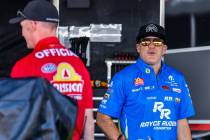From gator farming to drag racing, NHRA’s Savoie bites back with victories
Drag racer Jerry Savoie probably moves faster in his day job than he does on the racetrack, where his Pro Stock Motorcycle approaches speeds of 200 mph in about seven seconds.
When he's not pursuing his passion for racing, Savoie, who will compete in this weekend's NHRA Nationals at The Strip at Las Vegas Motor Speedway, is an alligator farmer and must always stay vigilant to avoid becoming gator bait.
"They both require quickness, as far as reflexes," Savoie, 56, said of his two vocations. "As far as danger, I don't feel danger in either one."
As the Discovery Channel's Mike Rowe remarked on an episode of "Dirty Jobs" that showcased Savoie and his farm in Cut Off, La. — which Savoie said is "cut off from the rest of the world" — alligator farmers tend to understate everything.
As fast as Savoie is, he estimates he's been bitten by alligators at least 50 or 60 times.
"I've been bit a bunch," he said. "The more you fool with them, the more chance you get (bit)."
Savoie, who has about 130,000 alligators on his farm, sported a cut on his face during the "Dirty Jobs" episode and had a gator chomp on his thumb six weeks ago.
"He bit me on my thumb right through my fingernail and right through the top of my knuckle," he said. "The next day it was swollen and full of pus. But it's healing up."
Through a program set up by the state of Louisiana, Savoie harvests alligator eggs, hatches them and raises the reptiles on his farm, returning 12 percent of what he hatches to the wild when the predators are 4 feet long. He estimates his farm returns 6,000 alligators a year to the wild, releasing them into the waters south of New Orleans from his air boat.
"Across the state, we put back about 40,000. We triple the population of what normally survives," he said. "They figure 3 to 5 percent (of alligator eggs) survive in the wild. And if there's a hurricane, none survive."
Once an endangered species, the American alligator averages 10 to 15 feet in length in the wild. Savoie's farm raises the reptiles to 4 to 6 feet long before harvesting them and selling them, with their skin used for boots and handbags and their meat sold with other seafood in restaurants around the world.
"It's low in cholesterol. It's really good," Savoie said. "Some of the Pro Stock riders, they love it."
Savoie served up his annual alligator fish fry to his fellow drag racers at last week's NHRA series stop in Dallas, where he claimed his third win of the year to climb into title contention. With two events left in the Countdown to the Championship, he's 31 points behind leader Andrew Hines, the reigning world champ who has a class-best four wins in Las Vegas.
"I never really thought about a championship until lately," Savoie said. "My goal at first was to win one race. We've won four and are looking for more."
Introduced to drag racing by his father at a young age, Savoie gave it up for 32 years to focus on working and raising his family.
"I always dreamed of running Pro Stock, I just never had no money," he said. "At 20 years old, I got married and stayed broke."
That began to change in 1989, when he started raising alligators. Savoie climbed back on a drag bike in 2011, when at age 52 he finished a career-best eighth in points in his rookie NHRA season. He earned his first win last year for his White Alligator Racing team and credits his breakthrough this year to crew chief Tim Kulungian.
"I'm very humbled to be in the position that I'm in. Not many people can say they came out after 50 years old and have been successful," he said. "The need for speed is in my veins. I've always been passionate about drag racing, no matter what.
"It kept me off of drugs when I was young. Just to be on a natural high and go fast and beat people racing is fun. It fills that void. A lot of people get on drugs because they get bored."
Between drag racing and raising gators, Savoie is in no danger of getting bored.
Contact reporter Todd Dewey at tdewey@reviewjournal.com or 702-383-0354. Follow him on Twitter: @tdewey33



